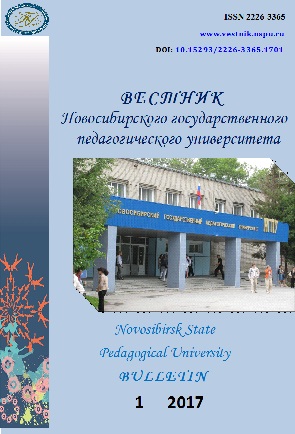Гендерные особенности личностного потенциала студентов первого курса педаго-гического вуза
Pedagogical universities first-year students: gender peculiarities of the personal potential
Author(s): Igor A. Galai, Roman Idelevich AizmanSubject(s): Gender Studies, Higher Education , Sociology of Education
Published by: Новосибирский государственный педагогический университет
Keywords: Personal potential; gender differences; social-cultural environment; reflexivity; vitality; self-organization; quality and life satisfaction; career orientations;
Summary/Abstract: Introduction. The level of development and realization of personal potential of pedagogical universities` students is the important factor of their readiness for the further professional activities and formation of the child`s personality. For this aim the gender features of personal qualities of male and female 17-18-years students (50 girls and 24 young men) of the 1st course of the Kuibyshev branch of Novosibirsk State Pedagogical University were studied. Materials and Methods. The empirical study of personal qualities of the students defining their personal potential was performed with the help of the following psychological tests: "Self-organization of the activity", "Vitality", "Life satisfaction", "Differential diagnostics of reflexive-ness", "Quality of life and satisfaction", "Anchor of career". Results. The research has shown, that the average level of values of indicators on various scales in both groups of students fluctuates from low to average in comparison with the standard values established for large university cities. It revealed similar level of development of personal qualities indicators in both groups (self-organization of the activity, vitality, an index of life quality, freedom), as well as gender peculiarities: the girls shown higher indicators on the following scales "Soul-searching", "Fantasy", "Communication", "The index of reflexiveness" and "Service", and young men have significantly higher values of such parameters as «Physical health», «Free time activities» and "Business". Conclusions. The received results testify the presence of gender personal features of the students defining their potential which depends also on social and cultural living environment. These data can be used for the organization of the educational process based on identified personal characteristics of students.
Journal: Вестник Новосибирского государственного педагогического университета
- Issue Year: 7/2017
- Issue No: 1
- Page Range: 95-105
- Page Count: 11
- Language: Russian

